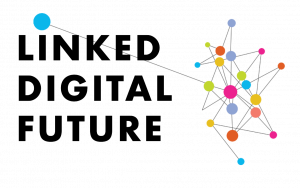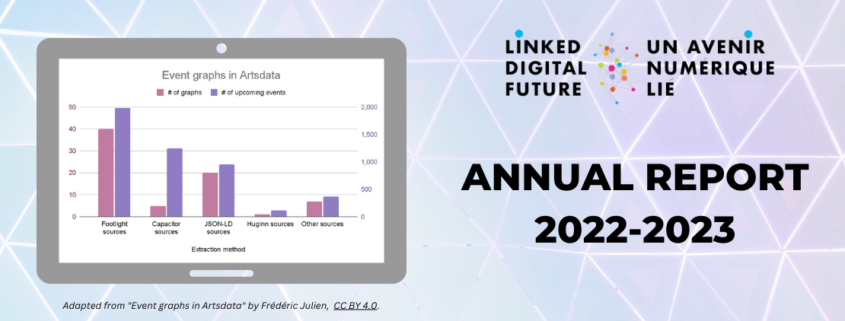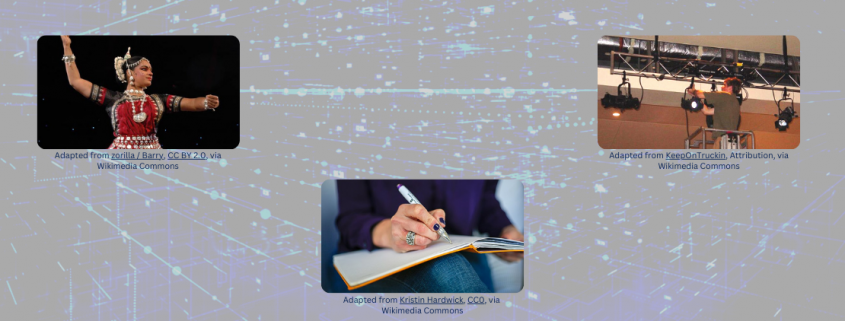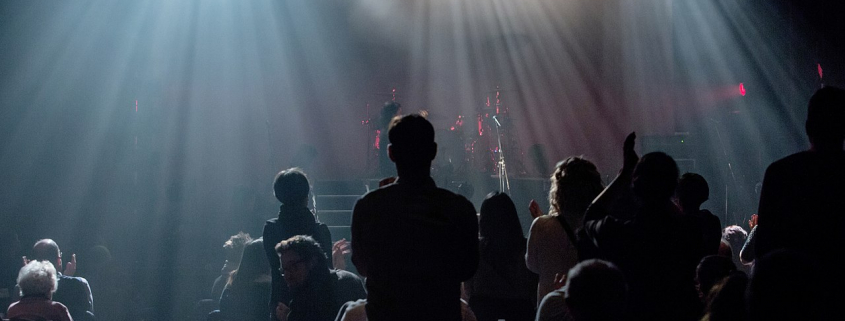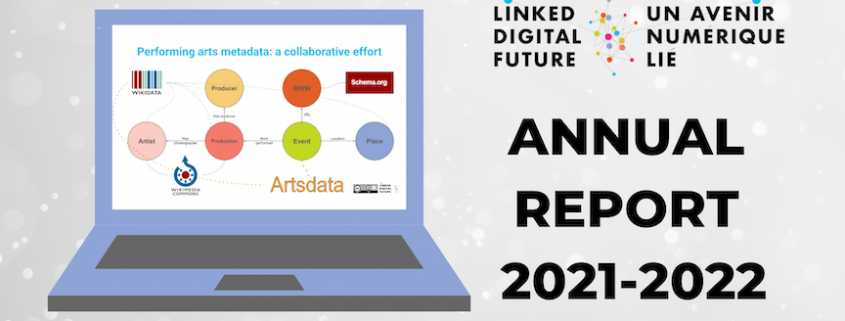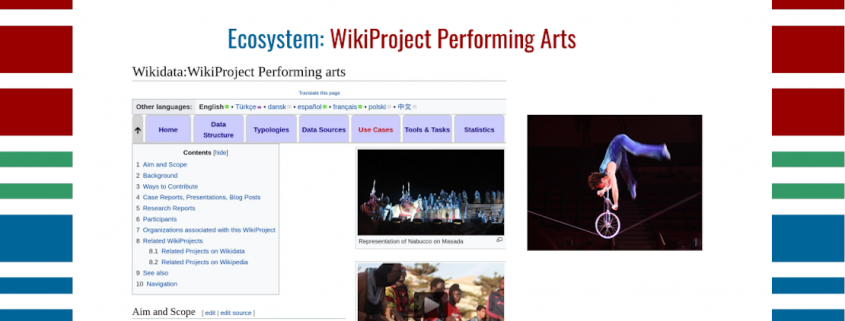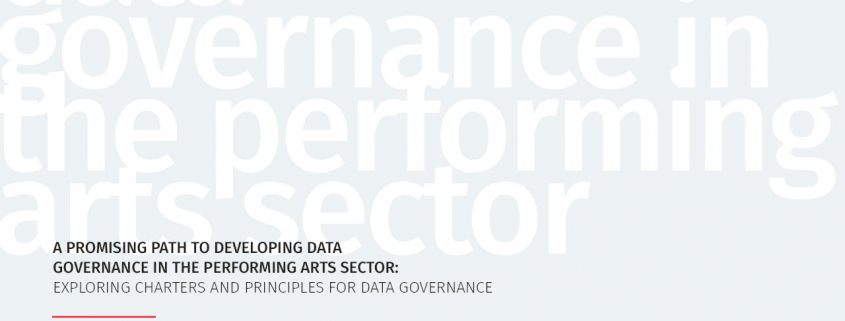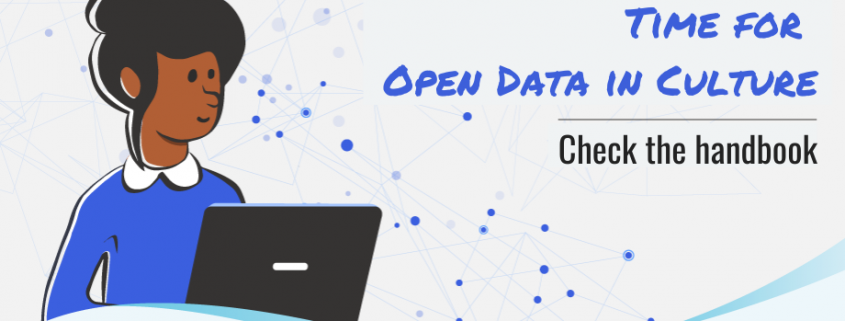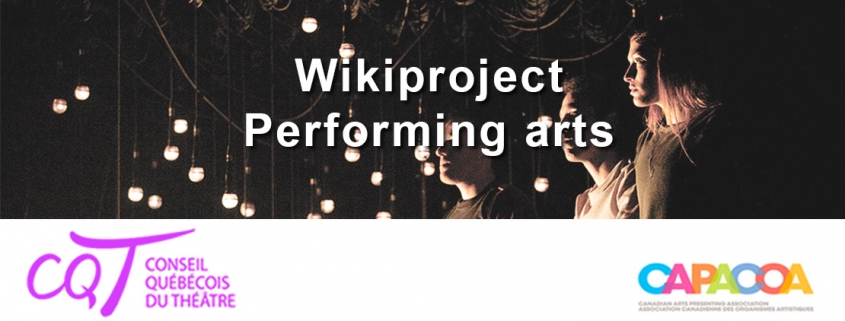The Linked Digital Future initiative was launched in 2018 to promote the discoverability of the live performance sector. After just over four years, has this discoverability challenge remained just as critical? Or has increasingly advanced Artificial Intelligence (AI) solved the problem for us?
Read moreCurrently, much of the information about Canadian performing arts sector entities (including performers, directors, designers, choreographers, organizations, venues and events) is not properly formatted to be found, read and processed by search engines and other discovery technologies. As a result, it is too often ignored or underutilized.
The Linked Digital Future Initiative (LDFI) was created to make performing arts-related information findable and to help build better connections in our sector – between arts workers and audiences – in the digital age. One of the ways this has been achieved is by converting already publicly available information into reusable and accessible data in open databases, such as Wikidata and the Artsdata knowledge graph.
Although LDFI is leading this work, it will take many leaders in Canada’s performing arts sector contributing information to turn this vision into reality.
Read moreCAPACOA is thrilled to announce that the LIVE Performing Arts Directory is now (in fact) live!
Read more2021-2022 was another great year for the Linked Digital Future Initiative.
In spite (or because) of the pandemic, we achieved significant progress in the production of open metadata about named entities in the last year. The number of artists in the Artsdata knowledge graph increased by 108%. The number of organizations, by 163%. And more data population activities are underway to increase the amount of data about places by at least as much. Moreover, we are finally looking forward to shifting the focus back to event metadata now that the sector is fully reopened after two years of running closures.
Metatada means “data about the data”. In the performing arts, metadata can provide useful descriptive information about artists, organizations, venues and performances.
Why is Wikimedia Commons a discoverability opportunity for the performing arts?
In a previous post pointing out the essential steps to a productive digital presence for the performing arts, we highlighted as a best practice the sharing of images in the Wikimedia Commons media library, a sister project of Wikipedia and Wikidata, under a free to use Creative Commons licence.
This practice deserves our attention because even if it may seem complex or disorienting, it is above all an extraordinary way to benefit from the positive bias of search engines.
We’ll be looking at Wikimedia Commons from three different angles.
Read more2021 was another year of ups and downs for the performing arts sector. Mostly downs, in fact. But there was one particular cheerful moment for the growing community of performing arts wikimedians.
Read moreAuthors: Ayesha Zamudio-Vazquez (Open North), Megan Wylie (Open North)
A summary of what we heard from our speakers and you to continue this work on data governance of open linked metadata.
Thank you to all of the participants who joined us on November 8th, 2021 for the webinar: Data Governance in the Performing Arts: Findings and Dialogue. The discussion was so rich that we want to offer you a recap.
Read moreOpen data. What is it? What about privacy? Does our cultural organization have data that we can make “open”?
These and other questions are discussed in “Time for Open Data in Culture.”
Read moreCan the changes in the way we create and consume art in this era reshape the performing arts sector? Find answers from our two-part webinar.
CAPACOA and the Conseil québécois du théâtre initiate an international cooperation project to increase the presence of performing arts in Wikidata.la présence des arts de la scène dans Wikidata.
Read moreChoose a different language:
Categories
Contact Us
CAPACOA
17 York street, suite 200
Ottawa, Ontario
Canada K1N 5S7
Tel: 613-562-3515, ext. 3
Contact Form
Subscribe
Website design by OCTAGRAM.


All text on this website is licensed under a Creative Commons Attribution 4.0 International License.
